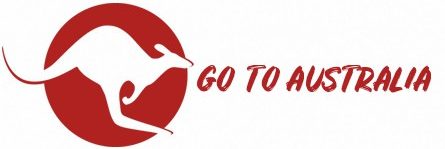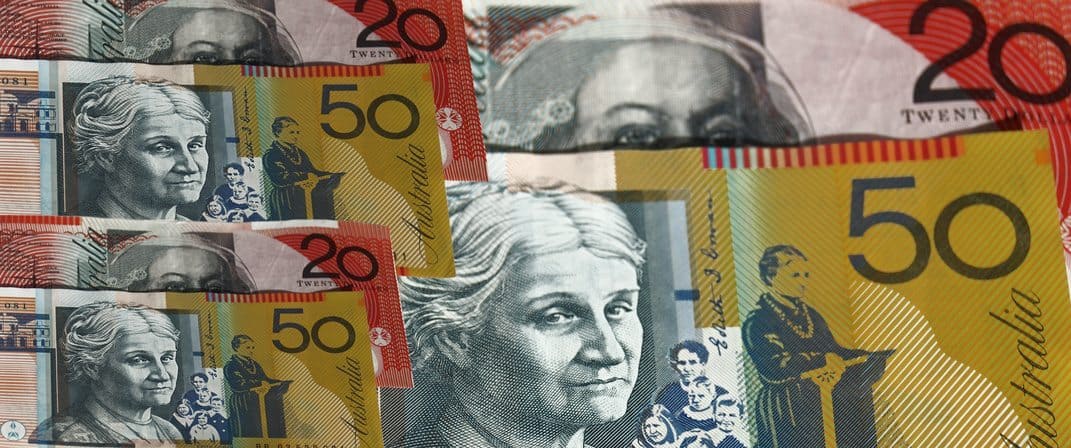Money and Australia
Expenses
On top of accommodation costs, you will also need to consider costs for things such as your phone, transportation, food and stationery. These costs may be dependant on individual stores nationwide. So for big items such as TVs and computers, it might be worth it to check out a few stores and compare the prices since it may just save you a few dollars!
Nevertheless, you can feel confident with the prices in Australia because the Australian Competition and Consumer Commission (ACCC) is there to protect you as a consumer, they do so by monitoring the costs of goods and services. Also, a 10 percent GST (Goods and Services Tax) is automatically added to most goods and services. Excluded from GST are fresh fruits, vegetables, meat, bread and dairy products.
Here is a list we have compiled to give you a rough idea of what you may expect to pay for everyday items in Australia (all priced in Australian dollars):
Bread: $3.50
Big Mac: $3.95
Milk (1L): $1.60
Rice (1kg): $1.60
Can of coke $2.20
Basic groceries: $30
Work and Income
As an international student visa holder, you are permitted to work up to 20 hours a week during study periods. However, it can be difficult to find part-time work and it's usually more difficult to find full-time work. To get started, surf the net and look in local newspapers for job openings. Congratulations if you manage to land a part-time job. However, you need to understand that you cannot expect to live off this income. Most importantly, you need to make sure that working will not interfere with your studies in any way. Talk to your teachers and student counsellors if you are unsure of your ability to balance both work and study.
Budgeting
Having a budget is important to avoid financial stress. Here are tips that you may find helpful:
- List and arrange direct debit for essential payments such as rent and phone bills. This minimises late payment possibilities, therefore minimising unnecessary fines and surcharges.
- Withdraw a fixed amount of cash every week and spend only that fixed amount on expenses such as food and transport (e.g. 120 spending money per week).
- Keep track of your account balance.
- Know the difference between needs and wants, and spend on the needs not wants. For example, you can spend money on food that you need, but not on a pair of new heels that you want.
- Use credit cards for emergencies only.
- Debit cards are recommended when shopping online. Unlike credit cards, it saves you from paying interest.
- Use less EFTPOS and withdraw cash from your banks' ATMs to minimise fees.
- Shop for second-hand goods at places such as the Salvation Army or weekend markets.
- Look for freebies and cheap stuff from free magazines. These magazines may be found in places like music stores, student centres and music shops.
Banking
It may be a challenge to find a bank suitable for you since there are so many banks out there! Visiting www.infochoice.com.au may help you make the right decision.
Once you have chosen a bank, your next step would be opening an account with that bank. Ask the bank of the exact documents required to open an account and make sure you have them all with you. It is usually enough to bring your passport, student visa and a letter written by your principal. However, your student ID card, your birth certificate and a document with your residential address may also be requested.
Once you have opened an account, you can begin to withdraw money and use your EFTPOS card. You can withdraw money from ATMs 24 hours a day, and your EFTPOS card can be used in most stores and supermarkets.
Credit cards
Most stores nationwide in Australia accept credit cards. You should have no problem using cards such as Visa, MasterCard, Bankcard, American Express.
Funds transfer
You can transfer money to Australia via bank drafts, telegraphic transfer or cheques. Bank drafts can take as long as 2 weeks to clear, cheques may take 5 days and telegraphic transfers can cost more but it is usually the fastest to clear.
Tipping
Tipping is not necessary. You can choose to tip up to 10 percent for good services received.
Insurance
As an international student, you are automatically covered by the Overseas Student Health Cover (OSHC). To maximise protection, you may choose to invest in additional insurances such as travel insurance, contents insurance or third party car insurance.
Your Australian budget
The cost of living in Australia varies for each individual international students. However, on average, the cost can be considerable. So budgeting is very important to ensure you meet your financial obligations and have enough to buy items you need as well as miscellaneous items like entertainment.
- Loaf of bread $3.50
- Apples (1kg) $2.00 to $5.00
- Rice (1kg) $1.60
- Milk (1L) $1.60
- Pubs: entry usually free but a serve of beer is usually from $3.00 to $10.00 (depending on location)
- Nightclubs: some have free entry, others have cover charges costs from $5.00 to $15.00
- Bag of pasta $2.00
- Big Mac $3.95
- CD purchase versus music downloads $25 v $1.99 (iTunes)
- Can of Coke $2.20
- A basic home-cooked meal $5.00 to $10.00
- Large take-away coffee $3.50
- Bag of essential groceries $30.00 to $50.00
- Cinema ticket $5.00 to $10+ (student discount)
- DVD rentals from $2.00 to $7.00 overnight (new release)
- Professional sporting events $30+
Being on a budget as an international student
Here they are:
- Make of list of things you need to pay for every month while in Australia. Now add up the total estimated cost. This is your expense budget. You should add another 10-30% on top of this monthly budget but for hidden expenses.
- Now, identify things that you have to pay for regularly (either weekly or monthly like rent, phone bills, gym membership). Try and set-up an automatic payment process from your bank account on the due date. In Australia, this process is called direct debit. This ensures your payments are never late payments (so you did get a late fee) as well as avoids you having to stand in line for an hour to make the payment in person.
- Ensure you have enough money in your account at all times.
- Look for free street press magazines. You can source them at cafes, music stores, universities, news agencies, cinemas, student stores and education institutions. Often, you can find for details of upcoming cheap or free activities (like concerts, art exhibitions, outdoor markets, sporting events and festivals).
- You can minimise bank fees by only using them at their ATMs only and by minimising withdrawals you make using EFTPOS.
- Lastly, live within your means and economically. If you stick to your budget, you can reduce your cost of living costs of living.
- Look into buying second-hand furniture and clothes in good condition at co-op stores like the Salvation Army or weekend markets.
Banking and insurance matters
Bank trading hours
Operational hours for banks and credit unions are usually between 9.30 am to 4.00 pm Monday to Thursday and 9.30 am to 5.00 pm on Friday. However, some banks are open on Saturday mornings, but all are closed on Sundays and public holidays.
ATMs
To access your money outside operational hours, visit an Automatic teller machines (ATMs). They are readily 24 hours a day.
EFTPOS
You can also access your money to pay for items using EFTPOS (Electronic Funds Transfer At Point of Sale). They are located in most stores including supermarkets.
Money Australia - Banking and Finance
Research - this is the most important thing to do before arriving in a new country, this will help a student get an understanding of how much day to day living and expenses will cost in Australia.
Student Visa holders are now permitted to work in Australia part time, this is anything up to 20 hours a week. This money will help, but don't use it to live off. Students will require other savings as well.
Putting together a budget is the best plan of action. This will help a student estimate how much they will need to live off each week, how much bills and food will cost them as well as if they will have anything left over. In a budget ensure there is money left over, for emergencies or hard times.
Budgets are fantastic, it helps you to see what you are spending money on and where you can cut back if need be. The most common mistake international students make is using their phone to much, international calls can be quite expensive.
The usual house hold expenses will be the biggest shock for new students, as this is probably the first time they have lived away from family an had all this extra responsibility. House hold costs will include food, rent, utilities (phone, electricity, gas). Then there are extras such as transport, tuition fee's and university books, and mobile phone plans.
In Australia there is such a thing called Goods and Services Tax or GST, this is an added cost on groceries and other goods. The government adds 10% onto any item sold. When purchasing a larger goods, such as electrical products like a television always ask if the advertised price includes GST.
Cost of products sold in Australia is closely monitored by the CCC or Australian Competition and Consumer Commission. This helps to ensure all retail outlets are charging consumers fairly.
Banking and Insurance
There are several large banks in Australia, they have branches located in most suburbs. All the student needs to do to set up an Australian bank account is to visit one of these branches and organise the right account for them.
Banks are open from 9:30am to 4:00pm Monday to Thursday, 9:30 am to 5:00pm on Fridays and some of the bigger more central branches open on Saturdays from 9:30am to 12:00pm.
To set up an account there are several documents you will need to bring with you, these are photo identification, your visa, passport, a utility bill (something that has your address on it), and a tax file number.
Tax File Numbers can be organised by contacting the ATO or Australian Taxation Office, a TFN is compulsory it will help international students to avoid any higher tax rates.
Once the account is set up, you will be sent information on the account and branch as well as an ATM card and pin number.
Credit cards are also available for use in Australia, however due to the higher interest rates it may be a better idea to avoid using one. Master Card, Visa, American Express and Bankcards are all available in Australia and can be applied for either online or through a bank branch.
When transferring funds from an international account to an Australian account, money may take a few days to clear. Bank drafts can take up to 10 working days to clear. Cheques will take 5 working days to clear.
Tipping is optional in Australia, it is usually only done in small amounts at restaurants or cafes. You do not have to tip taxi drivers in Australia.
Overseas Student Health Insurance or OSHC is essential for international students, this will cover any emergency medical expenses such as doctors visits and emergency hospital visits. This does not cover all medical expenses though, students may wish to purchase other private health insurance once in Australia.
Another option for insurance is travel insurance. This will cover any cancelled flights or lost luggage. To protect home content meaning any items in your home, contents insurance is the best option. This will cover all valuable which could be lost in the case of a break in, emergency or fire.
Third party car insurance is also compulsory for car owners, this will cover any damages done to another persons car as well as your own in the case of an accident.
Money
Automatic Teller Cards (ATM)
Automated teller machines (ATMs) are found throughout Australia and an easy way and convenient way of conducting transactions. It is highly adviseable that you consult with you local bank or institution whether you are bale to use your bank card at Australian ATMs. Awithdrawal fee may be charged for using a ATM owned by a foreign bank.
Costs
Taxes
The tax levied on goods and services (Goods and Services Tax) is usually a flat of 10% for all goods and services such as transport, accommodation, furniture, and clothing among other things. However basic food such as milk and bread, fruits and vegetables are exempted from this tax. The law requires that the tax be included in the shelf prices. Air as well as sea travel that is international is free from this tax. Also, domestic flights purchased by non residents outside Australia are exempted from this tax.
Tax refunds
When 300 dollars is spent in the purchase of either new or second hand goods from a single supplier in 30 days before leaving Australia, the Tourist Refund Scheme entitles you to a refund of any Goods and Services Tax or Wine equalization Tax (WET) that has bee paid. Not all goods qualify for this scheme. Those that benefit from it must be worn or taken in as hand luggage into the ship or plane. The refund also applies to goods that have been bought from different suppliers provided that from each at least 300 dollars has been spent. Further information can be sourced online.
Travellers Cheques
Although most people prefer the easier and better way of collecting money by using internationally linked credit and debit cards, traveller’s cheques still remain helpful in financial matters and still play a vital role. They can be cashed or exchanged quite easily from many banks and money agents throughout the country. It becomes quite complicated to cash your cheque if it is not a well known brand but international recognized cheques with brand names such as AMEX should not be difficult to exchange. You should be asked for identification at the exchange point. You will however have to be present it in form of a passport. The movement of traveler’s cheques in and out of Australia is not necessarily restricted.
Australian Money
Currency:
Australia uses a dollars and cents system with bank notes of $5, $10, $20, $50 and $100. Coins used are 5 cent, 10 cent, 20 cent and 50 cent (all silver coloured) and the $1 and $2 coins, which are gold coloured.
Exchange of Money:
As in many countries you may change money from other countries at exchange facilities upon arrival. These are located at international airports, banks and major hotels. If you think about using travellers cheques you have to keep in mind they are easier to use if they are already in Australian dollars. Most retail outlets will only accept traveller’s cheques in Australian dollars but major hotels and some shops may cash travellers cheques as well.



